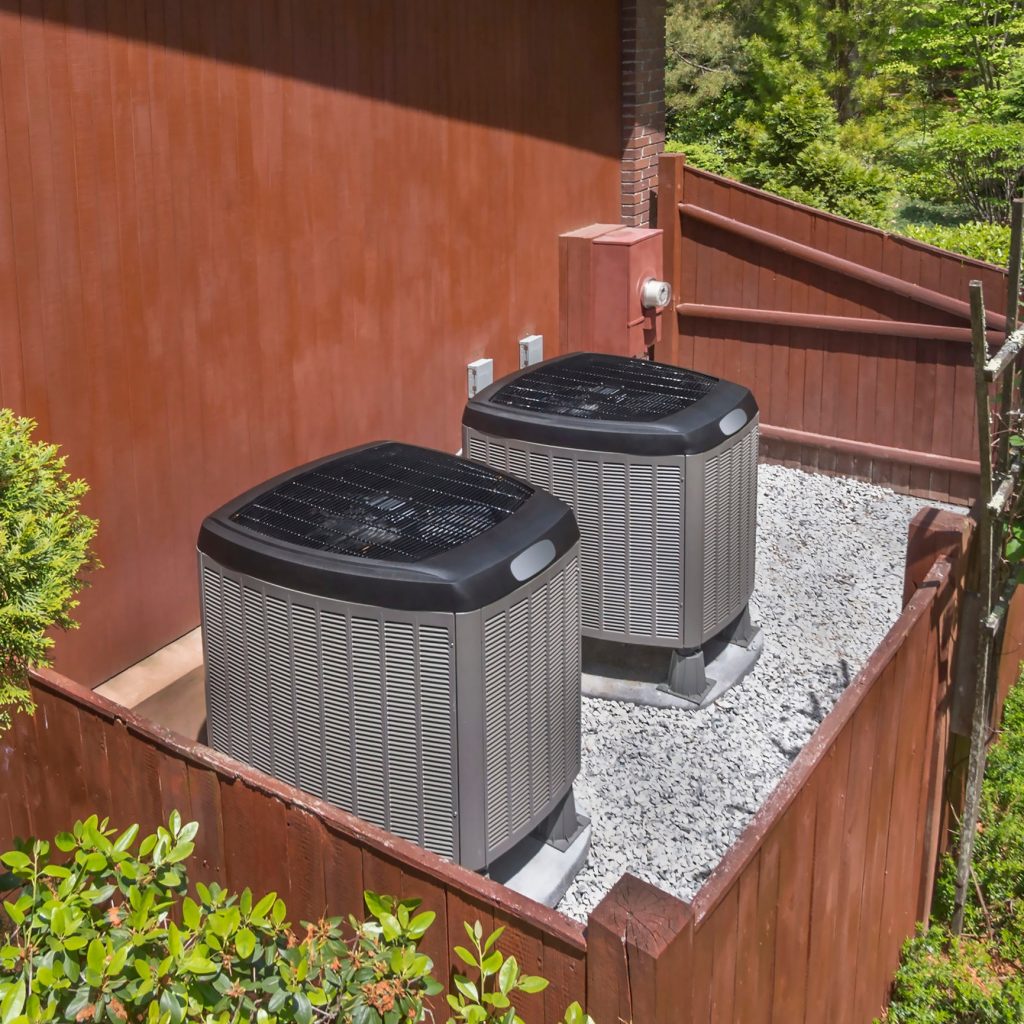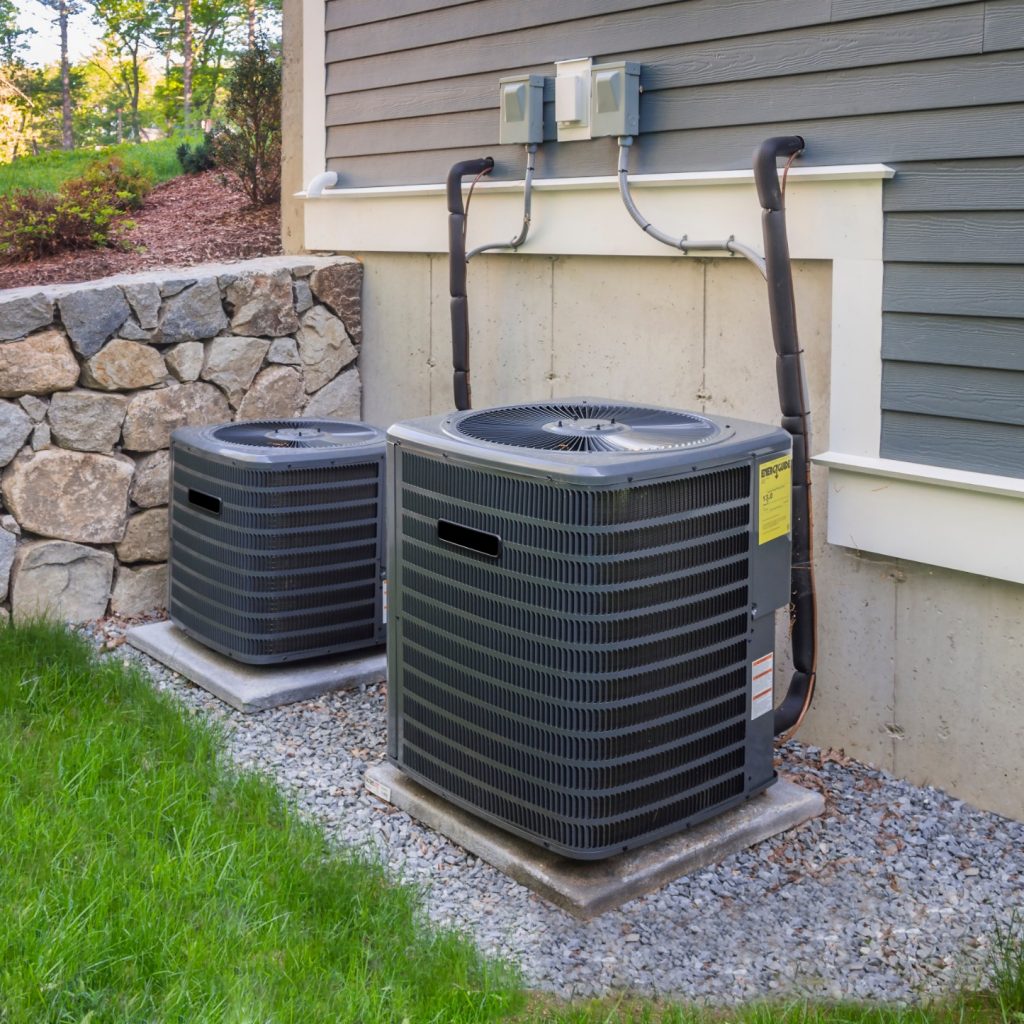Getting the right system for your home
It’s been a cold winter, but you remember last summer when the house wasn’t very cool, it seemed like your HVAC system was struggling to keep up? With summer just a short time from now, it may be time to considering shopping for a new HVAC system to buy before things get heated up again.
Not ready to spend that kind of money? Think about how much you spent on service calls last year and the year before. How old is your current HVAC system? Which is better for the budget in the long run – HVAC system repair or replacement? If your current HVAC system is leaking freon (again), the choice should be easy to make. You need to replace your current HVAC system.

What is the difference between HVAC and AC?
AC and HVAC are acronyms that refer to the same thing, just one acronym is shorter than the other. AC is the acronym for air conditioning and HVAC is the acronym for heating, ventilation, air conditioning. The two are frequently used interchangeably when somebody is describing their home’s air conditioning or heating, whether the device in their home is a central unit or window unit.
Is an HVAC an air conditioner?
An HVAC system has air conditioning along with heating and ventilation. It is not solely an air conditioner. Whether the HVAC system is cooling, or heating depends on what you have the thermostat is set at: “heat” or “air conditioning”.
What are the types of HVAC system?
There are 7 different HVAC system and each their own set of pros and cons. If you are shopping to install a new HVAC system, the following will provide you with information that can help make the right decision for your home and your family’s needs.
Heating and Cooling Split Systems
This is the most popular of HVAC systems, and as implied by the name, there are 2 major units within the system: a cooling system and a heating system. Both of these systems have an indoor unit and an outdoor unit. The outdoor part of the AC split has the cooling structure that has coils, compressors, a fan, and uses refrigerant.
The heating part of the split system is typically situated in the basement or a closet and the heat it generates when the thermostat is on heat is distributed by an evaporator or a fan that circulates the air.
The entire HVAC system utilizes a thermostat to control the temperature and keep your home comfortable. This system is perhaps used the most since they are generally applicable and do not require any specific needs.
Hybrid Split System
This type of HVACs is comparable to the split system described above with some differences, which has helped it become more popular as more homeowners are looking for ways to lessen their energy bills. What differentiates the hybrid from the split system we just discussed is the capability to switch between electric and gas power. This allows the homeowner to use whichever power is the best for them at the time. This type of system is most popular in milder climates that do not have extremely cold winters. Where it is like the split system we mentioned above, it uses the same ducts and thermostats.
Duct Free or Mini-Split
This HVAC system is unique and has high upfront costs, however, the benefits are big for certain applications. Instead of one central unit forcing cool or warm air to the various rooms, each room has an individual unit mounted on the wall. This provides each room with independent control. There is an outdoor compressor attached to the part that is inside the room and can be an expensive installation process. This type of HVAC unit is the perfect solution for an add-on to the house or the garage. Simple to install because they are controlled by each independent room, they are energy savers.
Packaged Heating and Air
The most niche of all the HVAC system types is this one. It contains air and heat in the unit and is stored all within your house, typically in an attic or in top floor space. It cools and heats, it is compact, perfect for small houses or a house where there isn’t room for an exterior unit. Energy efficient and easy to maintain, great for warmer climates since the heating part doesn’t heat as warm as cold climates need.
Still not sure which HVAC system type to go with for your home? Discuss the features, the pros and cons, and the install expense as well as the monthly expense with an HVAC expert. If you aren’t sure between an hvac split system vs packaged, take these facts into consideration:
HVAC Packaged
- Come assembled from the factory, making it more efficient.
- Because it is one unit, it is easy to install and doesn’t require expensive professional installation.
- An all-inclusive unit makes it less invasive because there aren’t any refrigerant lines.
- The SEER for this unit rates well at 13 to 18g.
- Because the total system is on the outside, their noise level inside your home is null.
HVAC Split
- The SEER rating for this system is at 25 or higher.
- It can be customized, making it flexible to fit your needs specifically.
- Minimal maintenance
- With high-rated energy efficiency, it is a value add to any home’s value.
How do you wire an HVAC system?
We strongly recommend that you have any HVAC system wired by a professional that is experienced and licensed to do this type of work. There are possible hazards that can fry the entire wiring system to your house and the HVAC unit you’re connecting.
If you are a DIY homeowner and determined to do the work yourself, we advise that you check with your local government agency if they require an inspection after you complete the work. If all is good to go, and you have positioned the HVAC system where you want it outside your home, follow these steps:
- Cut a hole for tubing and wire to run through the wall.
- Install the coil and line set
- Prep the connection for high voltage
- Install Disconnect Box, Electrical Whips
- Mount Whip, Connect Flexible Wire for Electrical Panel
- Hook Up Condensing Unit with high voltage connection
- Hook Up Wiring for Low Voltage
- Hook up the condensing unit with Low Voltage
- Run Low Voltage Wiring to Air handler or Furnace
- Run Wires to Thermostat
- Install Drain Tubing

How do you clean HVAC coils?
The evaporator coils to your HVAC system is inside the indoor handling unit. Turn the unit off and then remove the access panel. You can use any of the following methods to clean the AC evaporator coils:
- Compressed air will work if there isn’t a lot of dirt buildup on the coils. Direct the compressed air to go in the opposite direction in a consistent manner.
- A soft brush is effective to remove a slight amount of dirt and gives you more control over getting pressure in areas that may be hard to reach by an air compressor.
- A commercial cleaner great for the evaporator coils of your HVAC system follows the directions on the bottle.
- Mild detergent and water in a spray bottle can work just as good as a commercial cleaner. Spray the solution on the evaporator coils and allow them to sit for a few minutes to loosen the debris and dirt then wipe away with a soft brush.
If your HVAC system’s evaporator coils are dirty, call a professional HVAC technician to clean them. They have the experience, knowledge, and equipment to clean these better than anything you can do yourself, and safer too. Your home is an important investment and the HVAC system for your home is an important component. Don’t short sell the value of the HVAC system’s value to save a few dollars. Getting the best that you can afford will save you money in the long run. Need help finding the best HVAC system for your home in Macon, GA? Call 478-781-9107 today!




